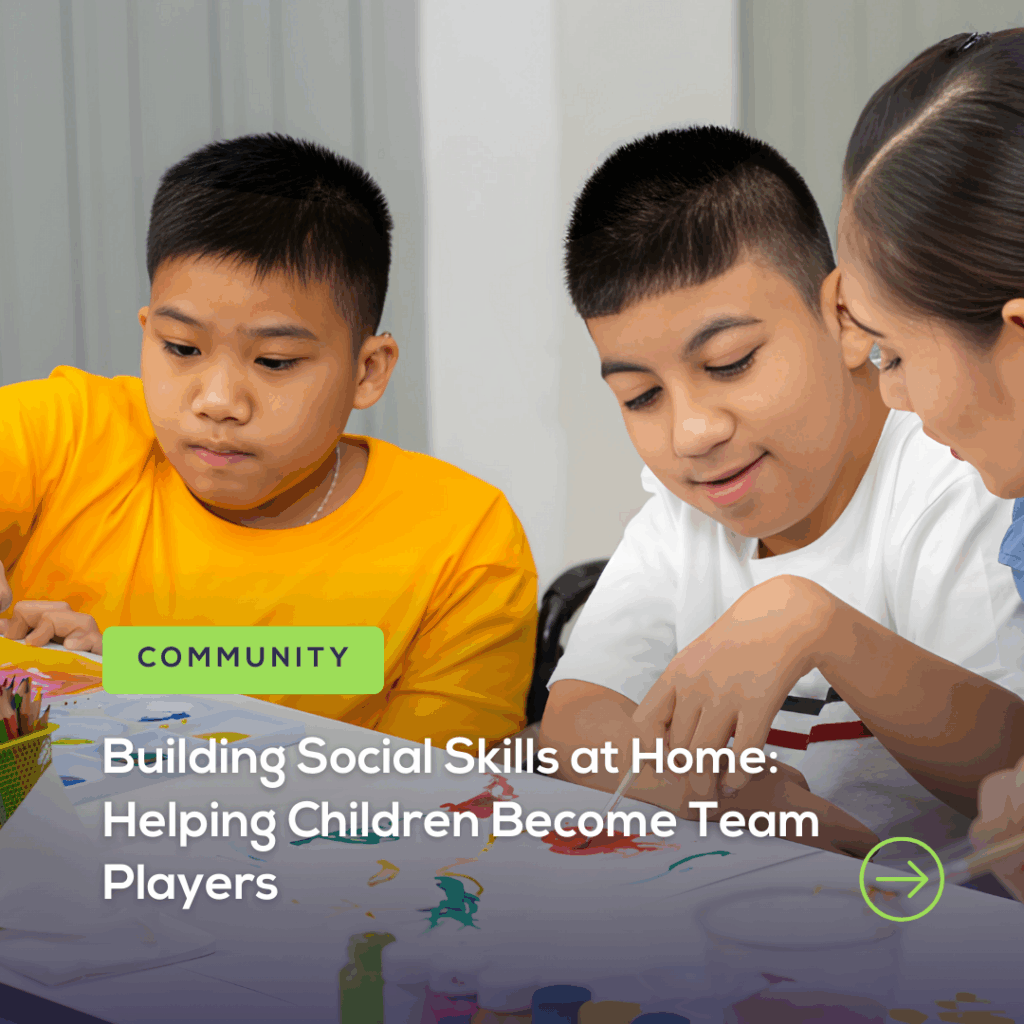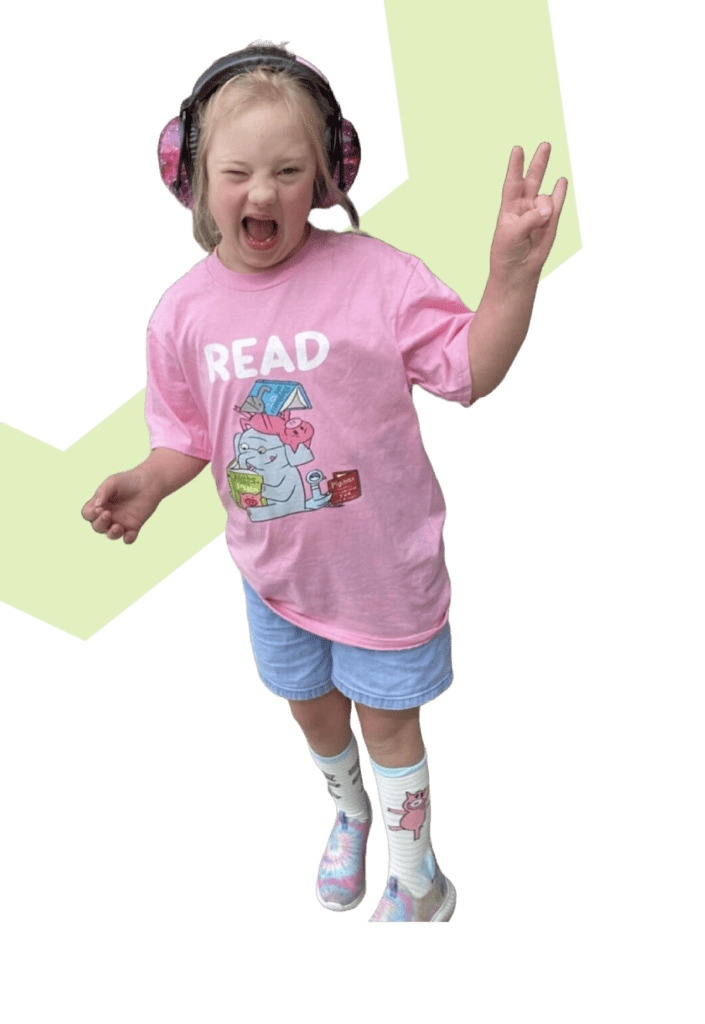Families Hoping to Nurture Social Growth
Parents of children with intellectual and developmental differences (IDDs) often wonder how they can help their child practice social skills when communication is hard. At school, weeks like Team Player Week give students opportunities to practice teamwork, turn-taking, and cooperation. But the truth is, social learning doesn’t only happen in the classroom.
At home and in the community, families can create everyday opportunities for children to build connections, even if they are nonverbal or need significant support. These small interactions build the foundation for belonging, friendship, and confidence.
Why Social Skills Matter
For our students, social growth is as important as academics. Strong social skills -things like sharing space, recognizing others, waiting, or helping- help reduce isolation and prepare children to participate in family life, school, and the broader community.
Research shows that children with autism spectrum disorder who receive direct practice with social skills experience improvements in peer interactions, emotional regulation, and daily functioning (Reichow & Volkmar, 2010). Families can play a powerful role in this growth simply by embedding small moments of practice into everyday routines.
What Social Skills Practice Looks Like at Home
Here are parent-friendly ideas for practicing baseline social skills at home with children with IDDs and limited verbal communication:
Cooperation and Turn-Taking
- Rolling a ball back and forth
- Taking turns stirring ingredients in a bowl
- Playing simple matching or stacking games side by side
- Choosing TV shows, songs, or books together (using pictures, devices, or gestures to “vote”)
Helping and Sharing Responsibilities - Passing utensils or napkins when setting the table
- Handing items to a sibling or parent while cooking or cleaning
- Carrying light grocery items into the house as part of a team
- Sharing toys or preferred objects with encouragement
Supported Communication - Using pictures, AAC devices, or simple gestures to request or respond
- Practicing greetings (“hi,” “bye,” waving, smiling) during daily routines
- Asking for help using a single word, picture card, or pointing
- Offering choices (two snacks, two shirts) to practice decision-making and interaction
Emotion and Self-Regulation Practice - Using mirrors or picture cards to label feelings together
- Practicing calming strategies as a team (deep breaths, music, sensory breaks)
- Modeling “asking for space” or “taking turns” during moments of frustration
Community-Based Teamwork - Putting groceries into the cart together at the store
- Dropping letters into the mailbox as part of a shared errand
- Participating in small family volunteering- packing food bags, decorating cards, or picking up trash as a group
- Greeting neighbors with a wave or smile during a walk
The Heart of Social Growth: Dignity, Purpose, and Inclusion
Not every child will hold long conversations or play group sports. But every child deserves the chance to:
- Contribute to their family and community
- Practice independence in small social routines
- Feel pride in “having a role” in shared activities
- Reduce isolation by being part of a team, however that looks for them
When parents celebrate effort -not perfection- children experience social participation as something joyful and meaningful.
Simple Steps to Try This Week
- Pick one activity (like setting the table) where your child can contribute.
- Model teamwork by doing the task together- handing items back and forth.
- Celebrate success with smiles, high fives, or verbal praise.
- Practice daily, keeping it consistent and predictable.
- Take it outside the home– a trip to the store, a neighbor’s greeting, or volunteering together.
A Community of Team Players
At Mainspring Academy, Spirit Month celebrations like Team Player Week highlight how important it is for children with severe needs to feel included, valued, and connected. But social growth doesn’t have to wait for school – it can be practiced at home, in the grocery aisle, or at the dinner table.
Because every child deserves the chance to be part of a team – at home, at school, and in the community.
Sources
National Core Indicators. (2022). In-Person Survey Report: Employment. https://www.nationalcoreindicators.org/
Reichow, B., & Volkmar, F. (2010). Social skills interventions for individuals with autism spectrum disorders: Evaluation for evidence-based practices within a best evidence synthesis framework. Journal of Autism and Developmental Disorders, 40(2), 149–166.



